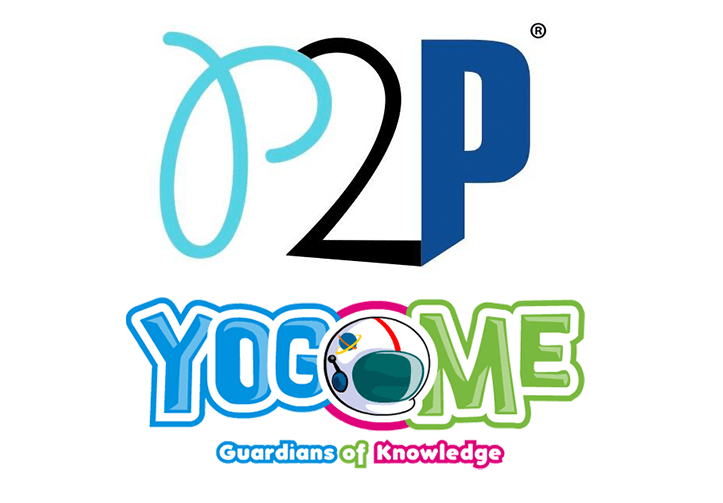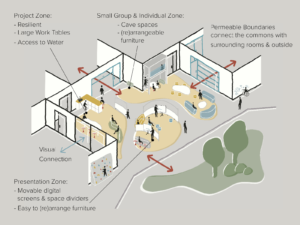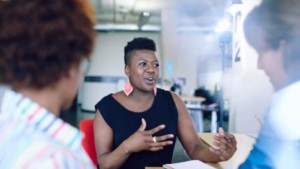Yale and Yogome Evaluate Effectiveness and Happiness in Common Core Math App

As parents and educators, we do our best to find high-quality apps that deliver on the educational promises they make. But we mostly have to rely on our own judgment and observations to evaluate whether an app is really improving a child’s learning in a meaningful way. Wouldn’t it be better to have proof?
One developer has set out to provide it. That developer is Yogome, an educational tech company. Recently, I sat down with Sandra Jacobo, Director of Education at Yogome, to get a behind-the-scenes glimpse of how they are working on an answer.
What got you into the EdTech space?
My background is in education, and I’ve always been interested in figuring out exactly how kids learn. In graduate school, I focused on bilingual education, but I felt like we were going in circles — we kept producing the same kinds of materials and nothing was working. So I started taking courses in the Technology and Innovation program, and I immediately saw that technology could give all students the opportunity to learn and be on the same playing field. EdTech has the ability to create a truly inclusive learning environment for all kids.
Tell us about the app Yogome is developing in partnership with Yale’s play2PREVENT lab. What’s happening right now and what’s the end goal?
The apps we are developing with Yale aim to teach the new Common Core math standards to kids in first grade and even extending a bit into second grade. At the moment, we are finishing and fine-tuning the app, and doing pilot testing to make sure everything is functioning. From there, Yale will start randomized control trials—at that point we let go of the app until we get the trial data back. The trials will involve 150 kids. The goal is to understand whether kids really are learning from the app, and also whether they are happier about learning after playing our games. The fantastic thing about working with kids is that they are brutally honest. Kids aren’t afraid to tell you if something isn’t working or just isn’t fun.
How is this partnership different from the way other companies are approaching game evaluation?
The industry-standard model is to use an in-house research team or a consulting group to evaluate the effectiveness of a game. The problem is that when you do in-house research, you tend to get skewed data. It’s hard to be accurate and objective. But when you are partnered with an academic institution, you have to step away from your product and let them tell you what’s right and what’s wrong. Yale is going to tell us whether kids are actually learning from our games, as well as having fun.
Also, the Yale team has brought a different perspective to our games and encouraged us to rethink certain things. At Yogome, we took educational standards and concepts, broke them down, and figured out how to make them a game. Yale is coming to it from the opposite direction: evaluating whether the game really does teach the concepts.
What’s ahead for Yogome? What would you like to see the company working on 5 to 10 years from now?
I’d like to see us build out our Common Core games past math, adding apps focused on literacy, on science, and so on. Eventually, we could take kids on a journey, starting in preschool and moving along through the end of elementary school, making core concepts fun and entertaining so that learning is not a chore or a task. I’d also love to develop a language curriculum—for example, making sure students in Mexico are learning English in a way that helps them converse and not just learn grammar.
Yogome is based in Mexico and the United States. How does being a multinational company influence the way you build your apps?
I think all of us at Yogome are very aware that families in different countries may have different priorities for learning, and schools have different standards. I’d love to see us build that global perspective into the apps. We have a parent dashboard, for example, to help parents understand what their kids are doing on our apps and what they are learning. It would be fun to include a feed that shows what is trending in different countries. Kids are fascinated by other people’s lives, and it would be wonderful to turn that fascination into a learning opportunity.
What advice would you give parents when they are looking for digital materials for their children?
It’s good to start by pinpointing what you are trying to work on with your child. Is your child struggling with math? Then try to find an app that supports that specific subject. You also need to make sure your child is engaged — if a kid isn’t having fun with the app, then the education part just won’t come through.
Is there a gold standard for how app developers should evaluate the effectiveness of their games?
Not yet—it’s like the wild west out there. A lot of companies out there are trying to develop a standard for evaluating games and making sure they are fun and educational. Until there is an accepted standard, parents and teachers need to do the work of evaluating what works for their children or students. In a space inundated with apps claiming to help kids learn, we hope that our approach to game development can help set a higher standard for developing educational games for kids.
- Smart Review | The Game Believes in You: How Digital Play Can Make Our Kids Smarter
- Are You A MacGyver Teacher?
Stay in-the-know with all things EdTech and innovations in learning by signing up to receive the weekly Smart Update.







0 Comments
Leave a Comment
Your email address will not be published. All fields are required.